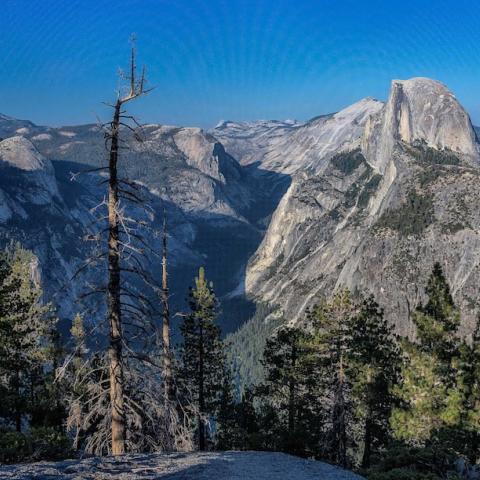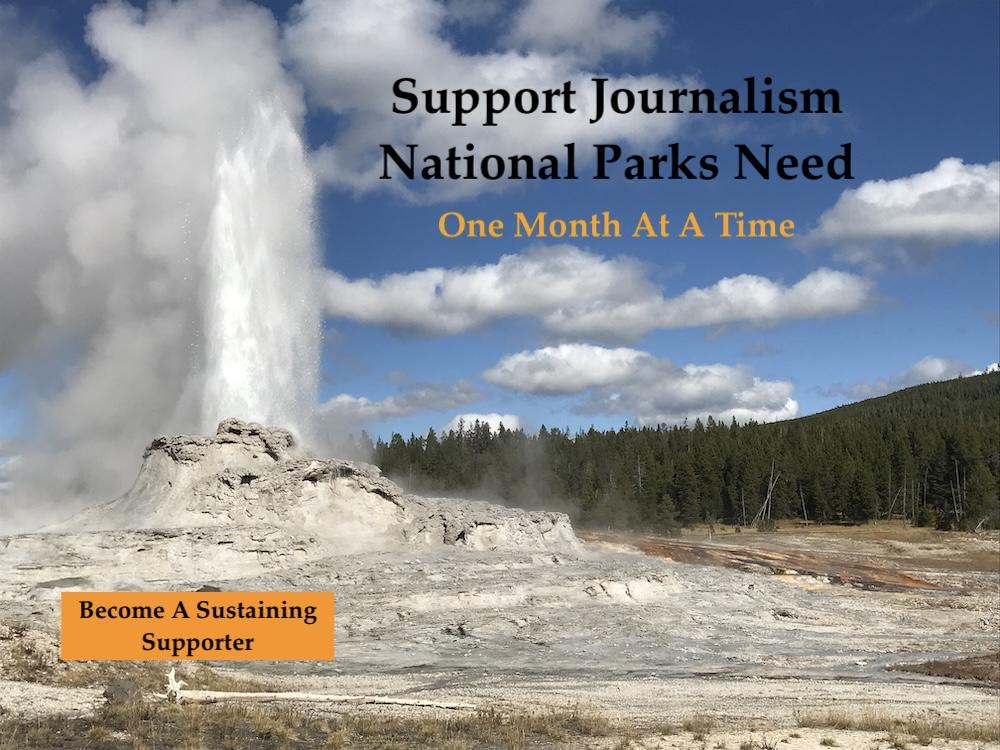A second case of plague has potentially been linked to Yosemite National Park, where crews were working this week to spray for fleas in rodent burrows near the Tuolumne Meadows Campground.
The California Department of Public Health director and state health officer, Dr. Karen Smith, said the department has been notified "of a presumptive positive case of plague contracted by a recent visitor to California from Georgia."
"Confirmatory testing is being conducted by the Centers for Disease Control and Prevention," the Health Department said in a release. "Prior to becoming ill, the patient had been vacationing in Yosemite National Park, the Sierra National Forest, and surrounding areas in California in early August. CDPH is in contact with Yosemite, CDC and the National Forest Service to assess locations where the patient visited."
Plague has been found in both the Crane Flat and Tuolumne Meadows campgrounds at Yosemite; a child who contracted the potentially deadly disease had camped in the Crane Flat Campground in mid-July. That campground was treated for disease-carrying fleas earlier this month.
Plague is an infectious bacterial disease that is carried by squirrels, chipmunks and other wild rodents and their fleas, the Health Department release noted. "When an infected rodent becomes sick and dies, its fleas can carry the infection to other warm-blooded animals including humans."
Although the presence of plague has been confirmed in wild rodents over the past two weeks at Crane Flat and Tuolumne Meadows campgrounds in Yosemite, the risk to human health remains low, the department said.
Action to protect human and wildlife health by closing and treating campgrounds was taken out of an abundance of caution. Park visitors are being notified by Yosemite of camp treatments, possible plague risks and are being provided information on how to prevent plague transmission. CDC has notified CDPH that recent communications about plague enabled health care providers in Georgia to make the diagnosis more quickly.
“The California Department of Public Health and Yosemite National Park were very proactive in their campaign to educate visitors about plague,” said Dr. Smith. “Warnings issued in California regarding plague were useful all the way across the country in Georgia. Those warnings helped the patient get the prompt medical attention necessary to recover from this illness.”
However, the father of an 18-year-old woman who contracted bubonic plague said there were no warnings posted in the park about the disease.
“Of all the signs that were up there, that is not something we saw,” he told the Fresno Bee. “And they certainly did not make this an issue.”
Ben Lindquist also told the newspaper that the family did not camp at either the Crane Flat or Tuolumne campgrounds, but did spend time in the Sierra National Forest. The Lindquists decided to have their daughter tested for plague after a relative passed on word of the earlier case possibly tied to Yosemite.
According to the California Department of Public Health, steps you can take to avoid exposure to human plague include:
* Never feed squirrels, chipmunks or other rodents and never touch sick or dead rodents.
* Avoid walking or camping near rodent burrows.
* Wear long pants tucked into socks or boot tops to reduce exposure to fleas.
* Spray insect repellent containing DEET on skin and clothing, especially socks and pant cuffs to reduce exposure to fleas.
* Keep wild rodents out of homes, trailers, and outbuildings and away from pets.
Early symptoms of plague may include high fever, chills, nausea, weakness and swollen lymph nodes in the neck, armpit or groin. People who develop these symptoms should seek immediate medical attention and notify their health care provider that they have been camping or out in the wilderness and have been exposed to rodents and fleas.
In California, plague-infected animals are most likely to be found in the foothills and mountains and to a lesser extent, along the coast. State and local health officials regularly monitor plague-prone areas by testing animals and their fleas. In 2014, non-human plague activity was detected in animals in seven counties: El Dorado, Mariposa, Modoc, Plumas, San Diego, Santa Barbara, and Sierra.
Human illness with plague is rare in California. Prior to 2015, the last reported cases of human plague in California occurred in 2005 and 2006 in Mono, Los Angeles and Kern counties and all three patients survived following treatment with antibiotics. Plague is not transmitted from human to human unless a patient with plague also has an infection in the lungs and is coughing.




 Support Essential Coverage of Essential Places
Support Essential Coverage of Essential Places






